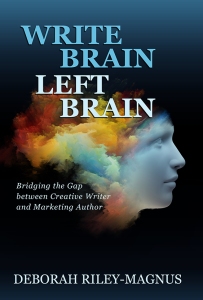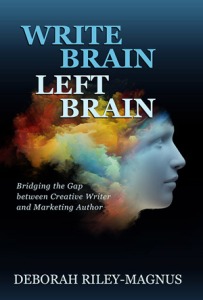
What a writer conundrum! There is always a good guy and a bad guy in a story. It’s all about how they evolve that makes the story hold a reader like a lover. But honestly, how many times has the bad guy or the good guy (or gal) in a story read like a flat caricature? A moving manikin? A bad actor in a pretty okay movie? Don’t’cha hate when that happens? Especially when the novel’s description really captured your attention and made you want to devour the book.
Good guys that are too good make me cringe. Like Superman. Seriously? That guy needs a flaw or two. He needs a dirty secret, a hidden fetish, maybe a drug dealing best friend, you know? Even in the most extreme stories, superheroes are way more interesting when they show the hidden chinks in their armor. It’s the difference between, “Meh?” and “Oh my!”

Okay, that was a rant. I just set aside three books in a row that made me mad as hell, and/or bored me to tears. All writers have their own style, I understand that. Character development seems to have either fallen off the truck bed, or been taken over by story action. Can’t have true character growth without a good story, and we can’t be leaving that character trapped in an ice block in sacrifice to story. Two sides of the same coin. At least that’s my feelings on the subject.
I have a favorite author. Loved, loved, loved his first three books in the series, then in the next book, he suddenly shifted into third person and told three separate story arcs in one book. Maybe he had a plan. Maybe he wanted us to fall in love with these other characters so he could start new series books for them. Whatever. This was not his normal style. Not bad, mind you, just not what I was expecting or looking forward to. It took me months and months to push myself through that book, but luckily, the fifth in his series returned to his original first-person style.

It’s not that I prefer to read (or write) in the first person. It’s just that I love that particular first-person focused character. The snarky, smart-mouthed, funny, and wonderfully thoughtful guy out there doing his dangerous, thrilling work. He’s flawed, screws up, even miscalculates often and his inner dialog during these events make the whole story wonderful and compelling. I was so happy to have him back. Not just because I was used to that presentation of the character and stories, but because I adore the deep internal power of that guy.
The deep internal power of a character really floats my boat. It’s the reason I love reading deep third person. The reason I am focused on writing deep third like a pro. I honestly believe that deep third is the road to strong character development that integrates great storytelling.

But the first goal when writing multidimensional characters that develop during a strong story, is to steer clear of the caricature conundrum. There are a million ways to do that. I’m a people watcher. I like to imagine what’s going on behind that old man’s eyes. What’s rattling in that waitress’s brain. Why that woman’s brow is wrinkled, and how’s that kid’s planning to get back at dad for taking away his toy. I like to imagine how that guy got the scar on his face. If the delivery man loves or hates his job. What his family is like at home, or if he even has a family. Maybe he makes cutout dolls of the family he wishes he had.
Writing well, I believe, has everything do to with observing well. It’s why I carry a notebook everywhere. There’s sure to be a snippet of dialog or facial expression that will work perfectly for my character in the next chapter.

Ever watched a dog and imagined what that cavapoo is thinking? Fun, huh? That’s kind of what we do with our characters, especially before they become whole people and dominate our lives. There’s that magical point where you put a thought into your character’s head and he says, point blank, “No!” That’s when I’m ready to write that guy. He’s ready to live and breath and make the story idea better. It’s all hand in hand. One and the same, and important. He’ll be himself, fail, succeed, screw-up, and make dangerous choices. He will be whole. He will develop and grow.
We want to witness WHOLE characters that continually evolve. We want to write (and read) amazing characters in amazing stories. So… that’s my completely unauthorized writing advice. What’s yours? How do you write growing, evolving characters your readers adore?





















 Authors,
Authors,



 Have you ever wondered about learning? How different people learn different ways? I recall, long (long) ago, when I was learning to ski, my boyfriend took me onto the snowy slopes and said, “Do this.” I couldn’t. It seemed I needed to learn differently. I wanted to know how my shins felt against the front of the boots, where my hands were supposed to be, what to do with my poles, and how to bend my knees. He couldn’t tech that way. We all learn differently.
Have you ever wondered about learning? How different people learn different ways? I recall, long (long) ago, when I was learning to ski, my boyfriend took me onto the snowy slopes and said, “Do this.” I couldn’t. It seemed I needed to learn differently. I wanted to know how my shins felt against the front of the boots, where my hands were supposed to be, what to do with my poles, and how to bend my knees. He couldn’t tech that way. We all learn differently. Unless, of course, you’re a writer. I believe writers are made in the womb, rolling gently in fluid and imagining what comes next. Learning came to us when we first opened our eyes, first screamed our distaste for the harsh, cold world, first felt warmth, heard voices, dreamed. Writers start early, long before we learned to walk we learned to see what we want, how we want, and create a reality around everything we didn’t understand.
Unless, of course, you’re a writer. I believe writers are made in the womb, rolling gently in fluid and imagining what comes next. Learning came to us when we first opened our eyes, first screamed our distaste for the harsh, cold world, first felt warmth, heard voices, dreamed. Writers start early, long before we learned to walk we learned to see what we want, how we want, and create a reality around everything we didn’t understand. As toddlers, we learned to tell stories, well, okay, we learned to lie. The word “no” was essential to this process. We didn’t do it. We didn’t need to go to the potty. We didn’t want to eat those green mushy peas. A few years later, the lies became more elaborate. The dog broke the pretty figurine. The chocolate fell out of the drawer. Our sister ate the donuts. Our little brother smeared paint on the wall. Lying became a way of life, especially in the fifth grade when teacher requested that we write a story. Wow, suddenly this lying thing was a good thing, and if the fire caught, we wrote, and wrote, and are still writing.
As toddlers, we learned to tell stories, well, okay, we learned to lie. The word “no” was essential to this process. We didn’t do it. We didn’t need to go to the potty. We didn’t want to eat those green mushy peas. A few years later, the lies became more elaborate. The dog broke the pretty figurine. The chocolate fell out of the drawer. Our sister ate the donuts. Our little brother smeared paint on the wall. Lying became a way of life, especially in the fifth grade when teacher requested that we write a story. Wow, suddenly this lying thing was a good thing, and if the fire caught, we wrote, and wrote, and are still writing. The imagination is our playground. While other people balance their checkbooks and make grocery lists, we stroll the produce aisle and create a complete background story for the old woman wearing a royal purple coat and sniffing tomatoes. It just happens. We don’t mean to do it, but the lies keep building until Louise Schoonhoven, tomato lover and descendant of disgraced 15th century Dutch royalty, ends up accused of murder in your next book entitled Planting Tulips.
The imagination is our playground. While other people balance their checkbooks and make grocery lists, we stroll the produce aisle and create a complete background story for the old woman wearing a royal purple coat and sniffing tomatoes. It just happens. We don’t mean to do it, but the lies keep building until Louise Schoonhoven, tomato lover and descendant of disgraced 15th century Dutch royalty, ends up accused of murder in your next book entitled Planting Tulips. This is learned behavior. Merriam-Webster defines learning as 1) the act or experience of one that learns. 2) knowledge or skill acquired by instruction or study. And 3) modification of a behavioral tendency by experience (such as exposure to conditioning.) Wow, that’s a mouthful and most of it irritates us creative types. We don’t want to be reconditioned, we like ourselves just as we are. We don’t mind acquiring skills, but sometimes the training doesn’t stick. Does this mean easy learning is not in the cards for creative minds like ours?
This is learned behavior. Merriam-Webster defines learning as 1) the act or experience of one that learns. 2) knowledge or skill acquired by instruction or study. And 3) modification of a behavioral tendency by experience (such as exposure to conditioning.) Wow, that’s a mouthful and most of it irritates us creative types. We don’t want to be reconditioned, we like ourselves just as we are. We don’t mind acquiring skills, but sometimes the training doesn’t stick. Does this mean easy learning is not in the cards for creative minds like ours? Look, we all take workshops all the time. Writing workshops, character development classes, plot development clinics, dialog improvement lessons, you name it, we’ve taken it. If it’s an online read-and-post-lesson workshop, it has a good chance of getting into our heads. But when trying to learn complicated things, we need a bit more … especially when looking into topics like MARKETING, PROMOTIONS, and PUBLICITY. We need to overcome the aversion to the subject, and learn quickly in order to see real sales results for those fabulous books we write.
Look, we all take workshops all the time. Writing workshops, character development classes, plot development clinics, dialog improvement lessons, you name it, we’ve taken it. If it’s an online read-and-post-lesson workshop, it has a good chance of getting into our heads. But when trying to learn complicated things, we need a bit more … especially when looking into topics like MARKETING, PROMOTIONS, and PUBLICITY. We need to overcome the aversion to the subject, and learn quickly in order to see real sales results for those fabulous books we write.












